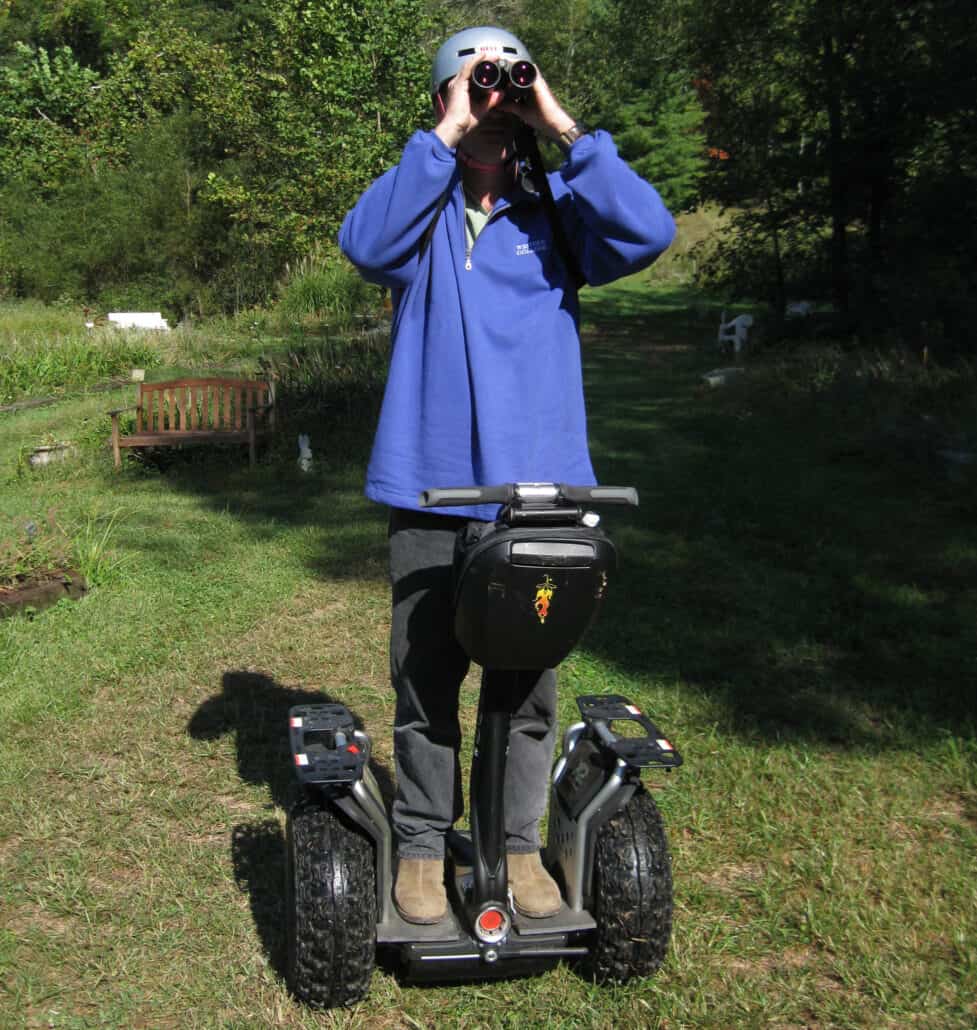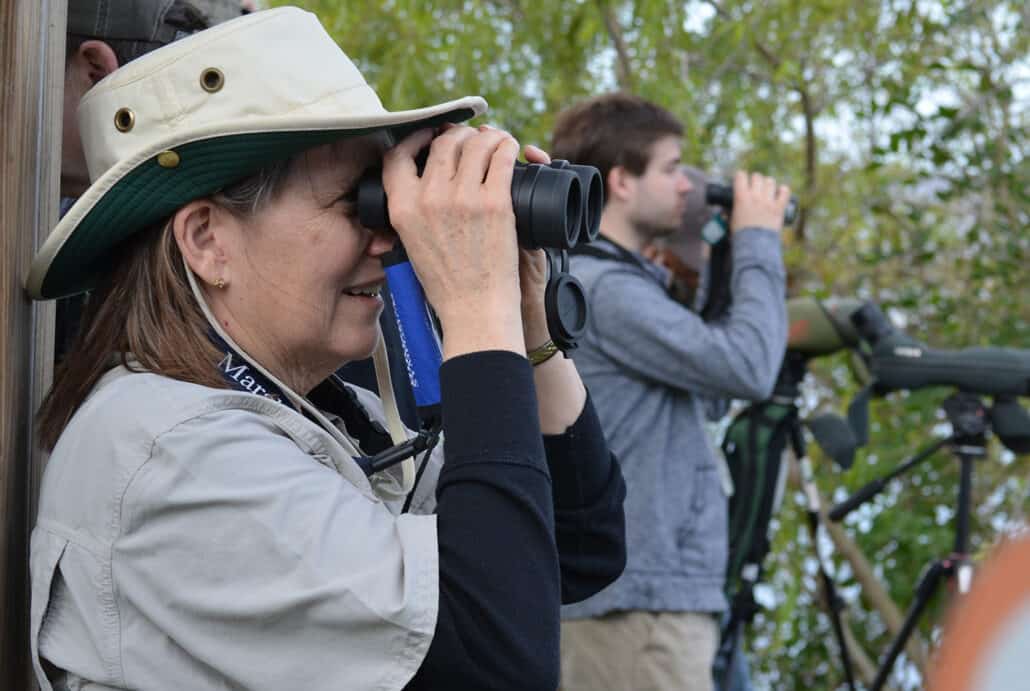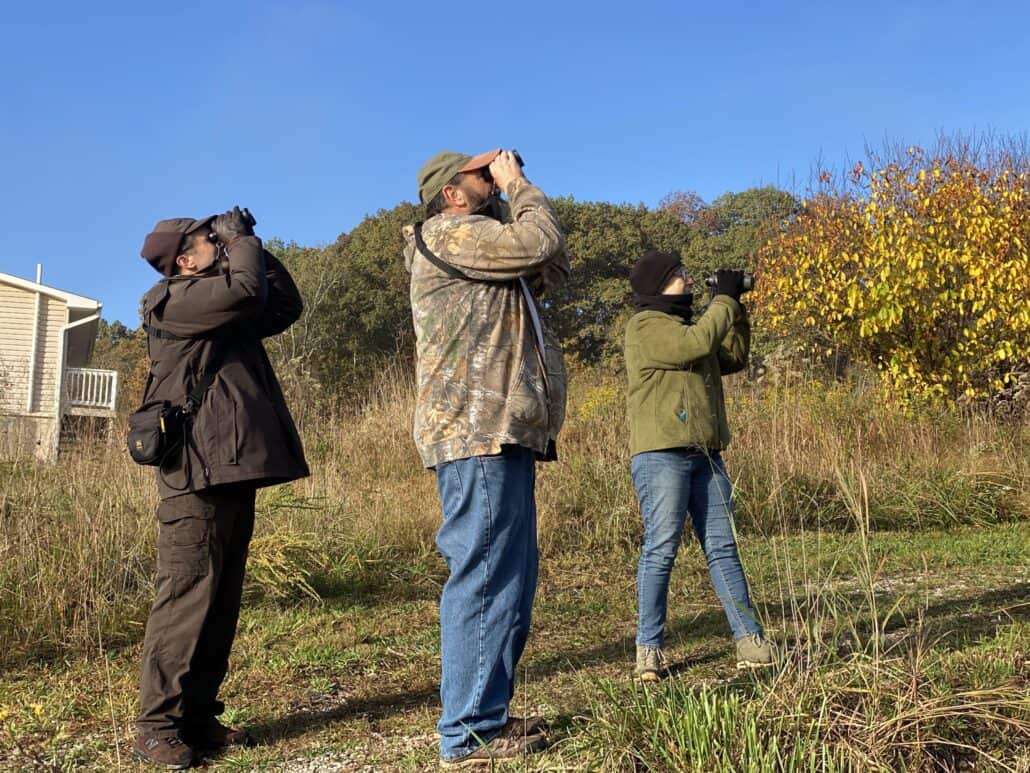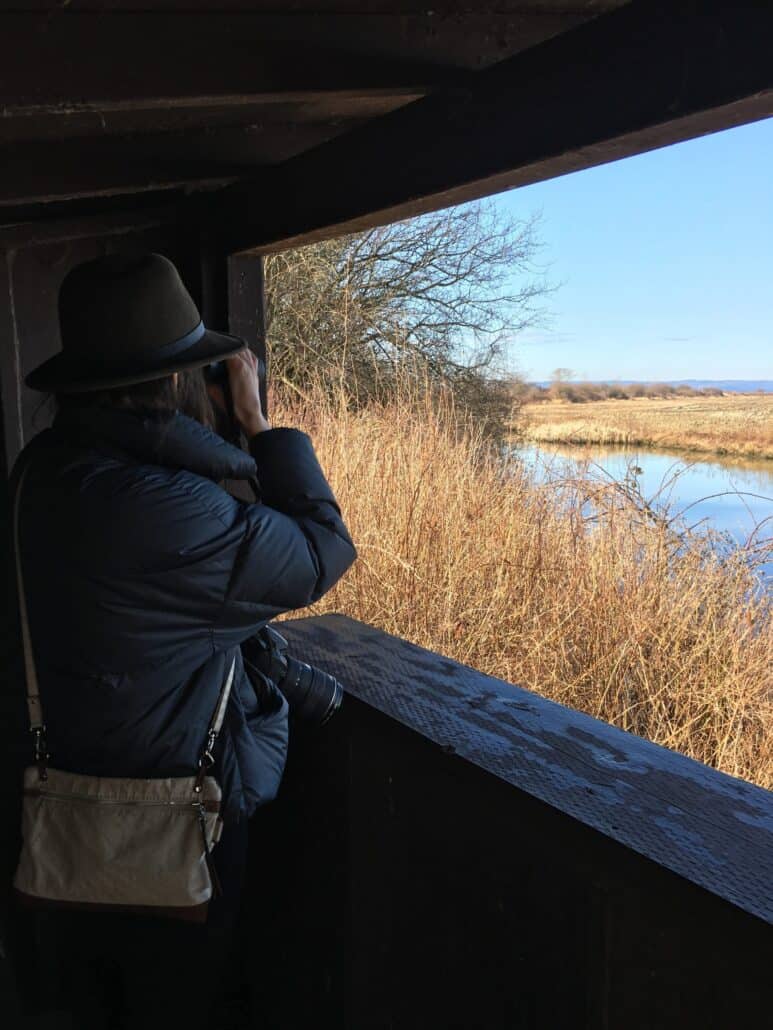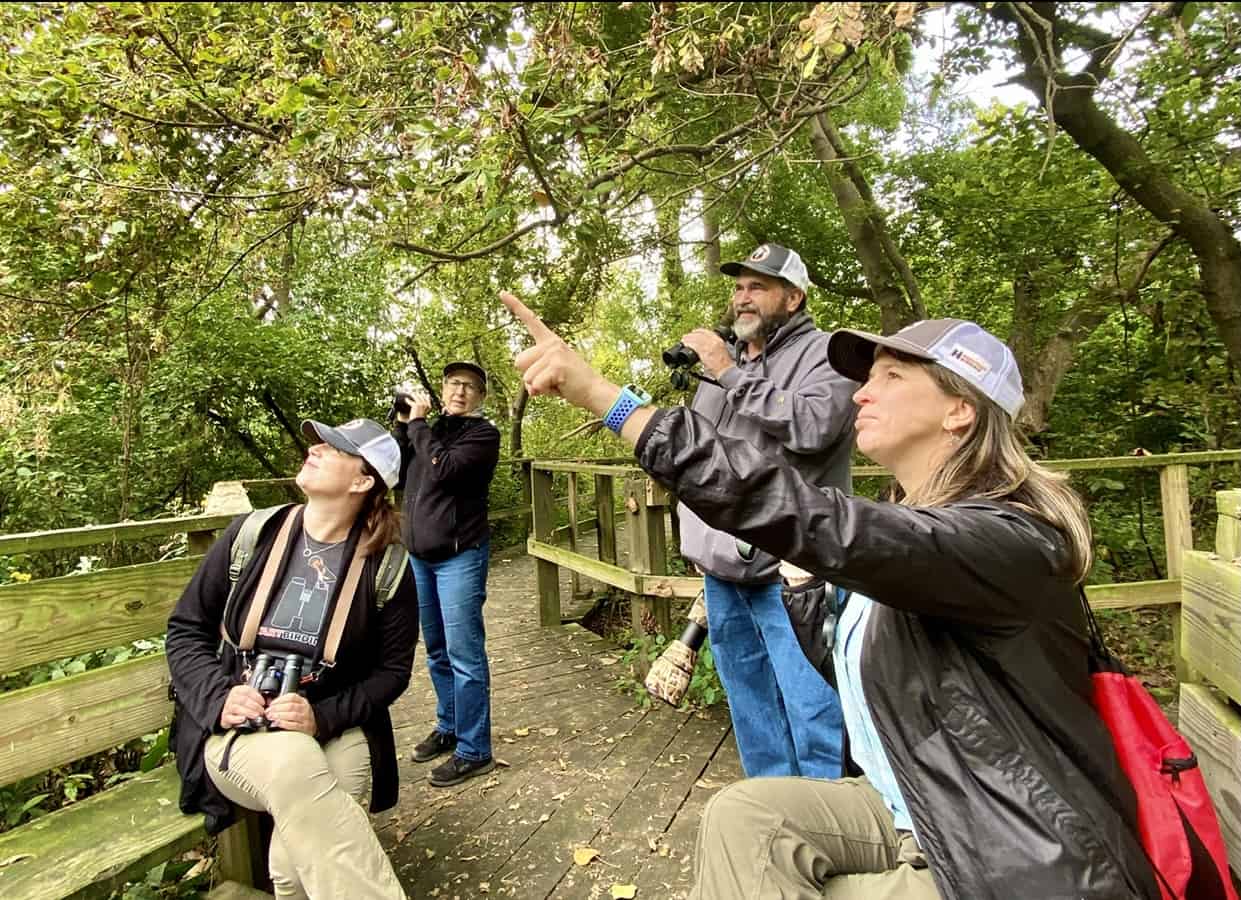
You would be hard-pressed to find a nicer group of people than birdwatchers. Of course, as in any large group, you might find an occasional bad apple, a braggard, a know-it-all, a loudmouth. But for the most part, birders lean heavily toward the nice, kind, gentle end of the spectrum Especially when you compare them to groups on the opposite end of the spectrum—the biker gangs, sociopaths, serial killers, and the like. In contrast, birders seem almost angelic. So why am I complaining about their bad habits?
First, I am not complaining. Moreover, I am not even saying these habits are bad. I’m merely pointing out certain habits and tendencies that I’ve noticed are prevalent among birders. Habits that are not as common in other groups. They might better be described as idiosyncrasies, mannerisms, or tics. Unconscious actions, usually done without thinking. We all have them.
You may remember that during the initial phases of the COVID-19 virus, medical professionals constantly warned us against inadvertently touching our face and mouth with our hands and how you suddenly became aware of just how often you were doing that without thinking. It is entirely possible that likewise you may have never noticed any of these habits among your birding friends. But, I’ll bet that once I have described them, you will start noticing them.
Are these habits really annoying? Obviously, if you never noticed them before, they can’t be all that annoying. And once you become aware of them, they will only become annoying if you let them. But, first you have to know what behaviors to look for. I’ve listed six of the habits I most frequently observe. (I could have listed a dozen more.) They are in no particular order. Read them over. Then, the next time you are birding with a friend, see if you notice any of them.
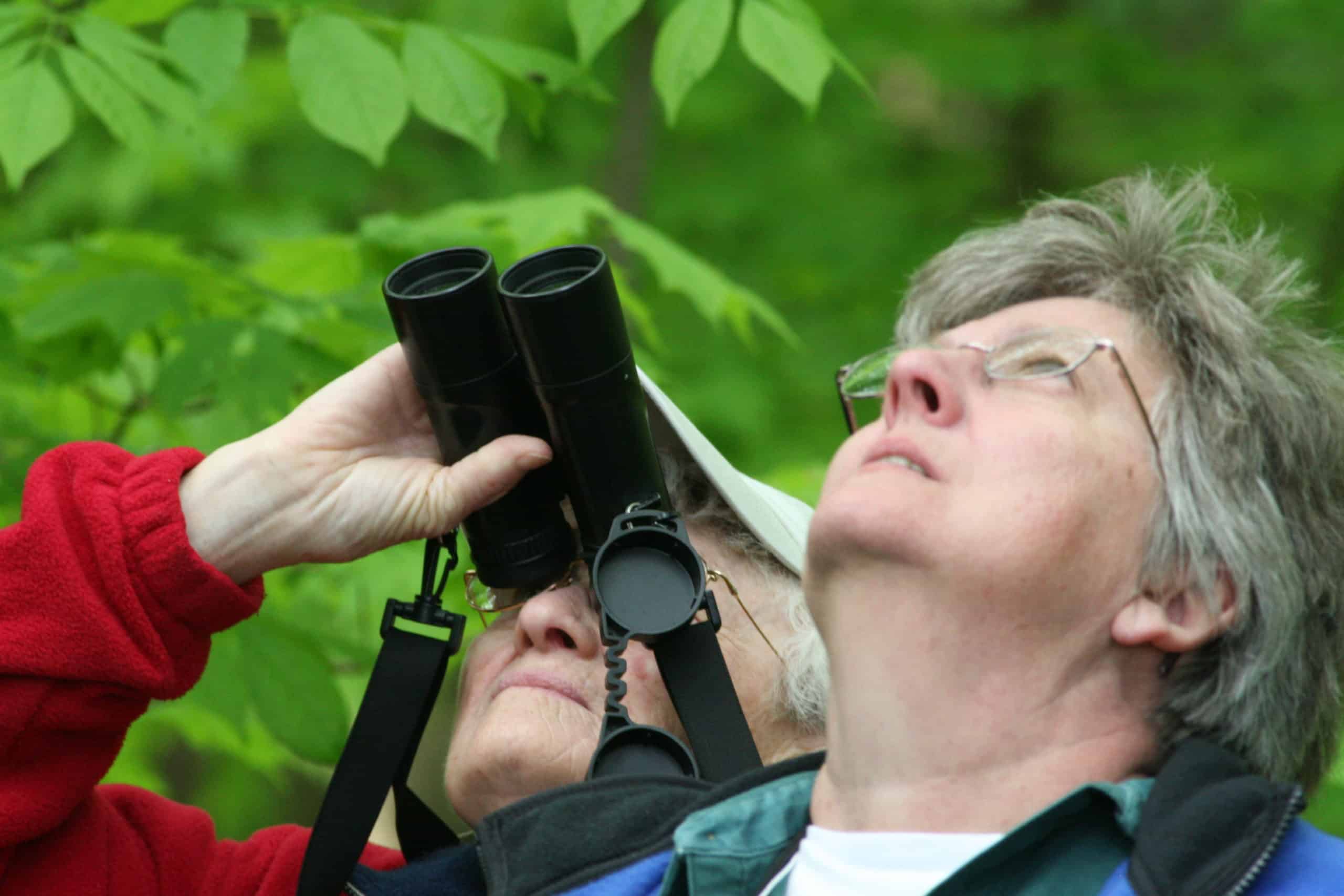
1. They never make direct eye contact.
This habit is most easily noticed when you are sitting at an outdoor table directly across from your birding friend. Carefully notice where her eyes are focused. Is she looking you in the eye? Is she even looking at you at all? Or does she glance past your shoulder like you aren’t even there? Do her eyes move constantly? Scanning everywhere, past your right shoulder, your left, over your head? Looking everywhere but directly at you.
Indoors, you may observe your friend constantly glancing out a window at a bird feeder or shrubs in the yard. But never directly at you.
The logical explanation is that she is still birding, constantly scanning for movement. Looking for good birds. Or is she? (I still haven’t completely overcome my mother’s admonition from years ago to never trust anyone who doesn’t look you in the eye.)
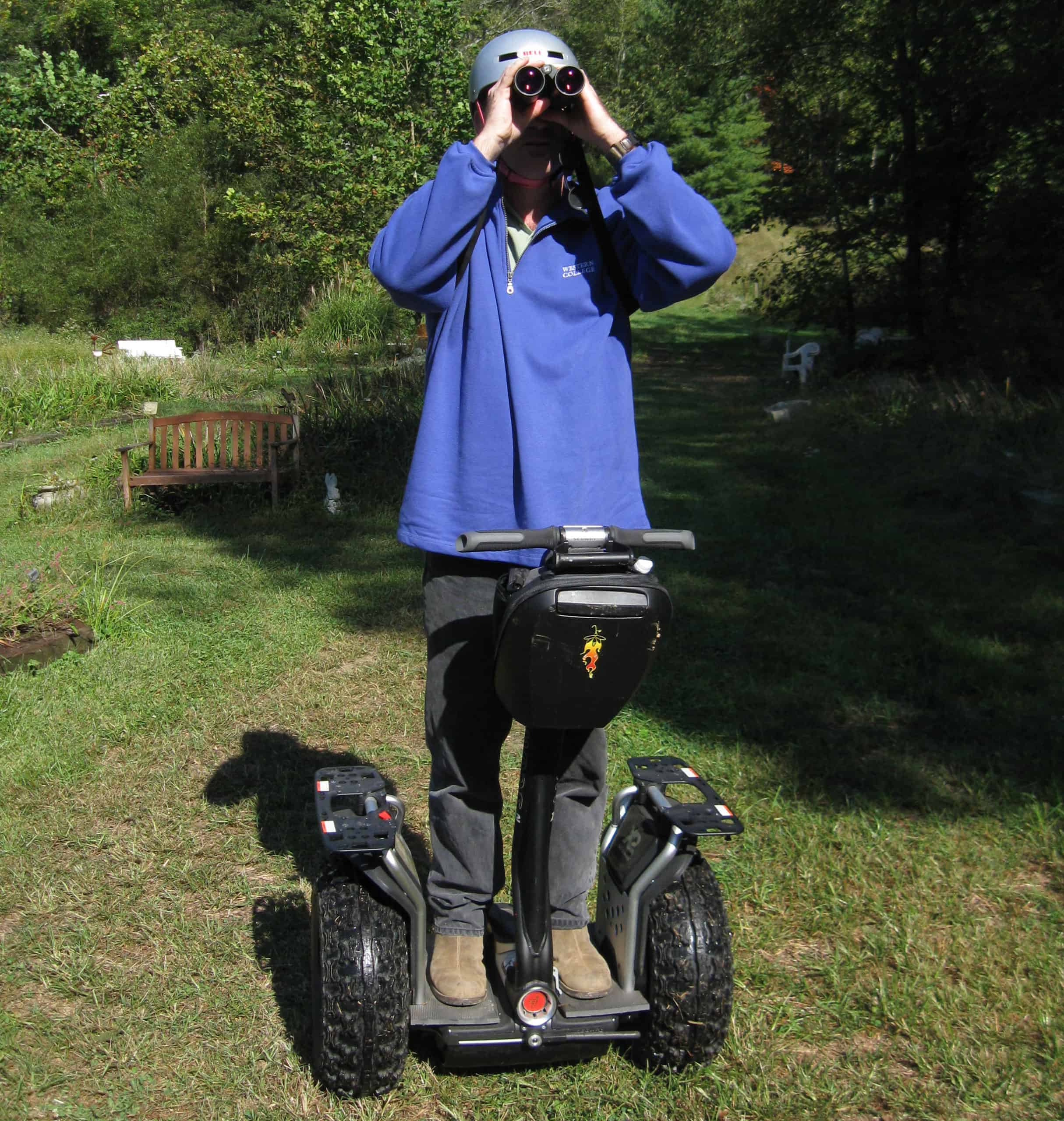
2. They always multi-task.
Real birders are always birding, even when deeply engrossed in another activity such as a serious conversation on an important topic. Picture yourself seated at the same outdoor table. A bird flies over. Your friend might say something like, “I just spoke with my attorney and he―cardinal―thinks we have a good case.” She simultaneously IDs the bird and continues the conversation without missing a beat. A stranger overhearing that sentence might be confused, thinking her lawyer is a cardinal. But a birder understands completely.
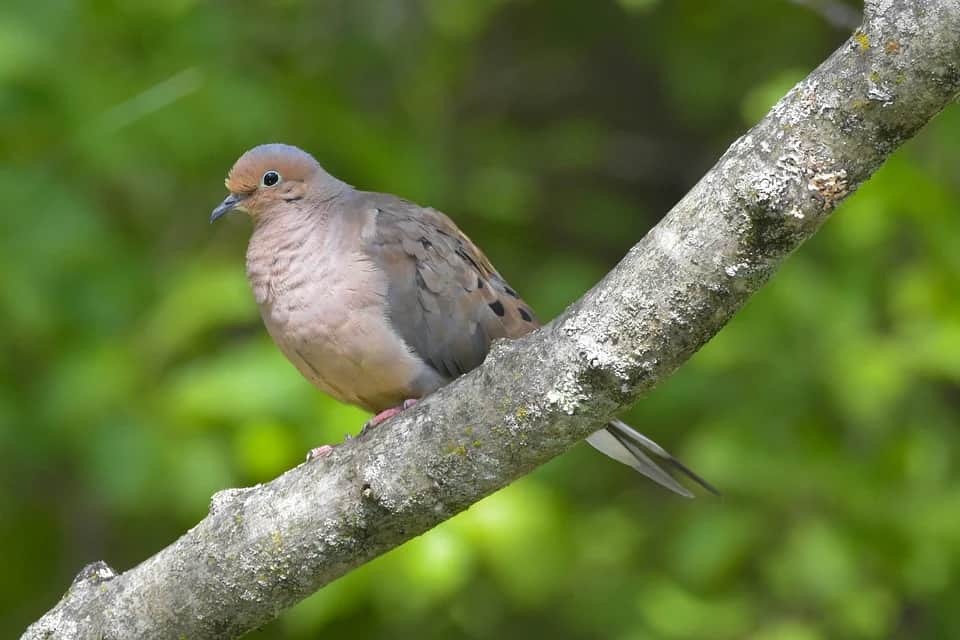
3. They rarely use proper terminology.
Birders seldom use the official name to refer to a species. They prefer to use jargon, abbreviations, and cute nicknames. I believe they feel that using the correct terminology is a sign of an amateur, and they certainly want to feel part of the “in” crowd.
When I was a beginner, I admit that this habit annoyed me a lot. And confused me. Experienced birders would rattle off bird IDs. But often I didn’t know what birds they were talking about. For example, when I first heard the term MODO, it sounded exciting, but I had no idea what it was. Later I tried to look it up in my field guide but couldn’t find it, and it wasn’t listed in the index. For months I assumed LBJs were named in honor of Lyndon Johnson. How would I ever learn to identify a bird when I didn’t even know what the experienced birders were talking about? I didn’t even attempt to look up a “butter butt.” I was sure that wasn’t in my field guide.
Every field develops its own unique shorthand. It simplifies communications. An auto mechanic talks about a Chevy, not a Chevrolet. Baseball fans deal with RBIs and ERAs. The government is composed of large bureaus generally referred to by initials—the FCC, the FDA, and, of course, the IRS. Scholars in higher education talk about calc, not calculus, and poly sci instead of political science. Shorthand is commonplace.
Eventually, I learned birding shorthand and what species birders were referring to. It is not annoying among experienced birders, but it can drive beginners mad. I must admit that now I am guilty of the practice.
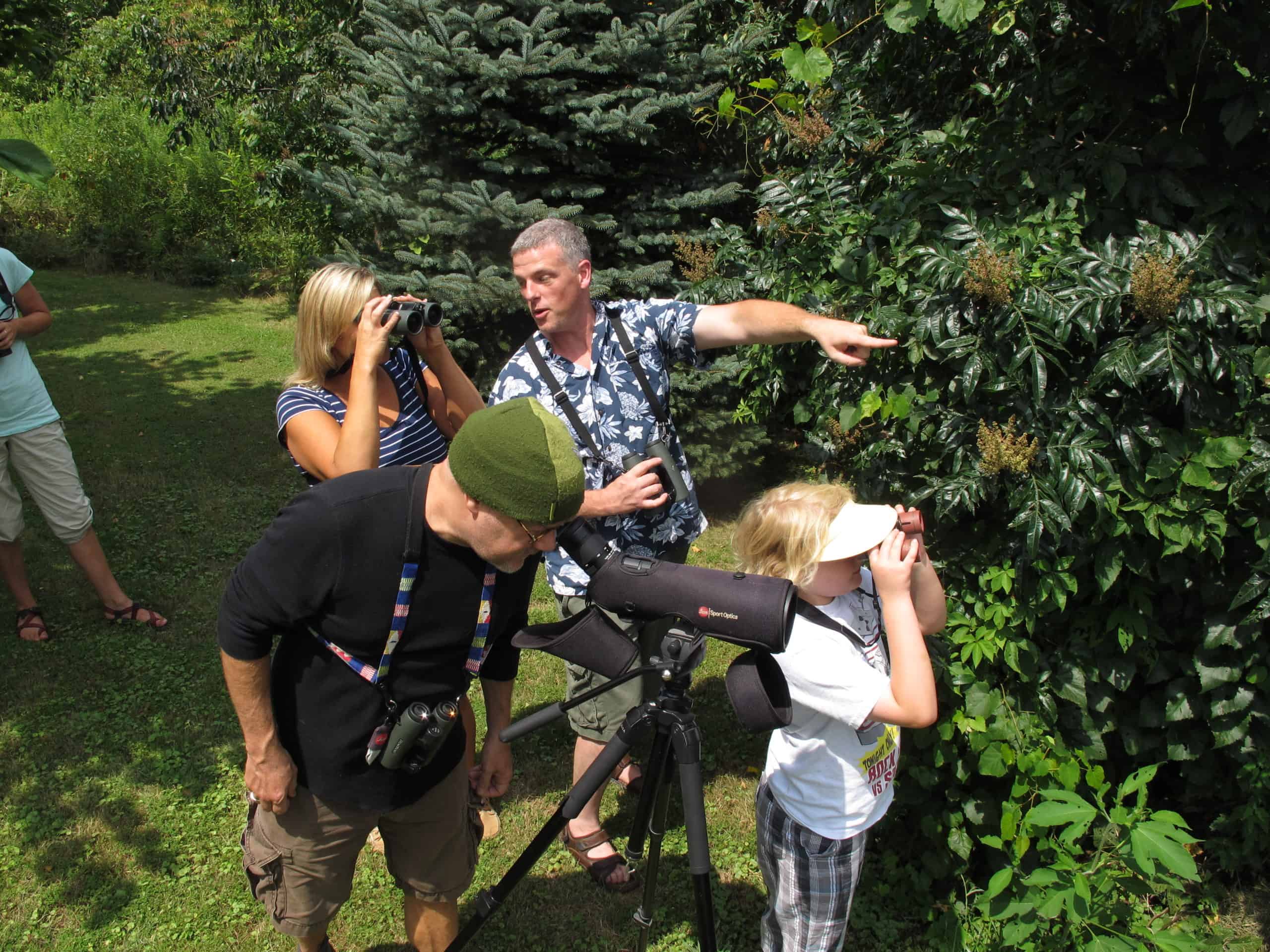
4. They give terrible directions.
Birders go out of their way to be helpful. When they spot a good bird, they always want to share the sighting with you. They eagerly provide directions to help you find the bird. Unfortunately, the first thing they usually say is, “It is in the tree over there on the big branch.” When you are in a forest, those directions are not very helpful. They can see the bird perfectly. It stands out like the proverbial sore thumb, and they do not understand why you can’t spot it. It is so obvious.
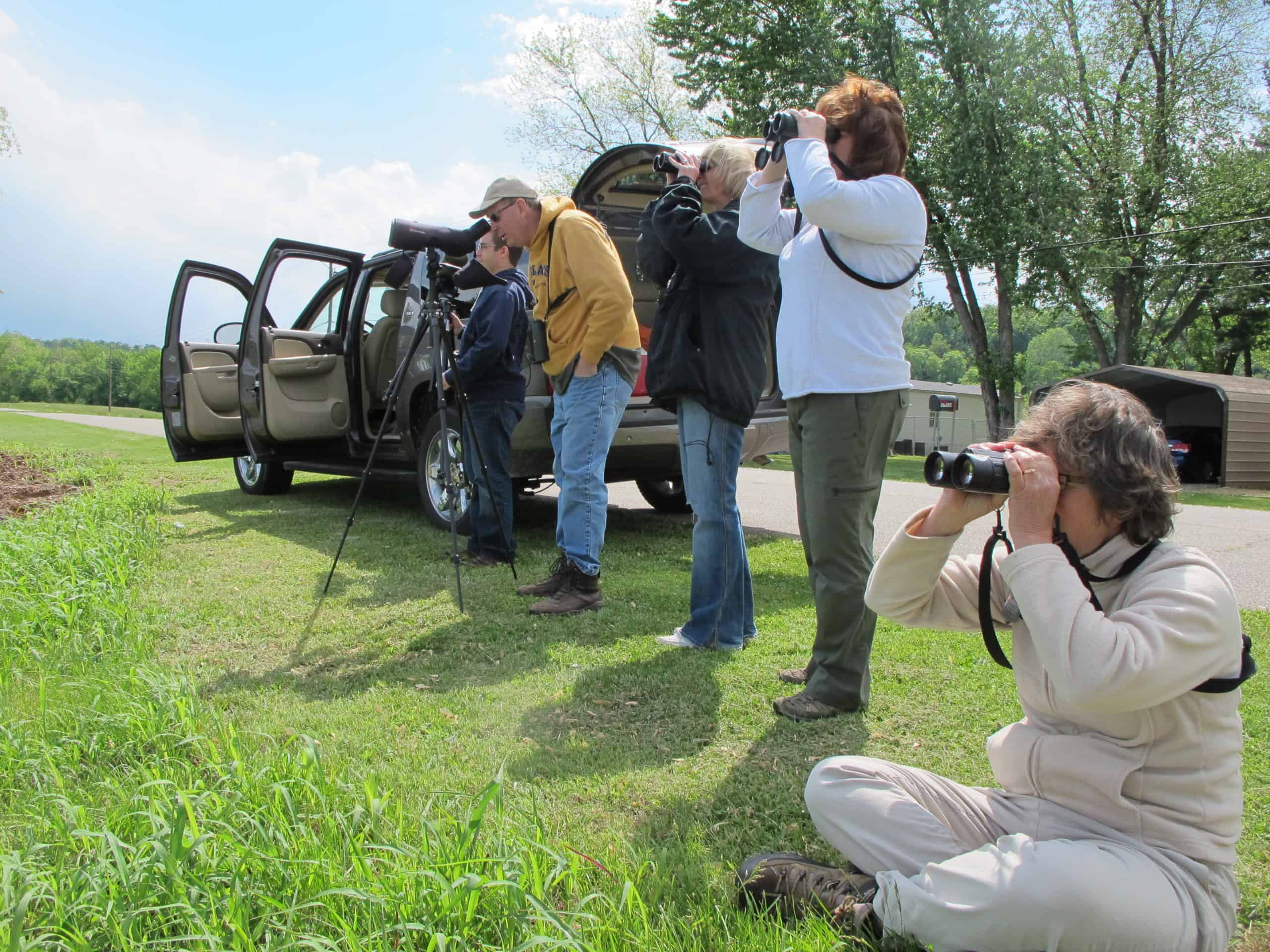
5. They never forget and live in the past.
Birders, like fishermen, constantly remember past times. A fisherman might utter the classic line, “You should have been here yesterday—they were really biting.” A birder will recall how last year the warblers were falling out of the trees, or the enormous flock of grackles they saw last week.
Birders often couple their good memory with wishful thinking. If once, ten years ago, they spotted a rarity in a particular tree, they will carefully scan that tree again every time they walk past, hoping against hope, that the same rarity will be there again today (even though the chances are slim that it is even still alive!).
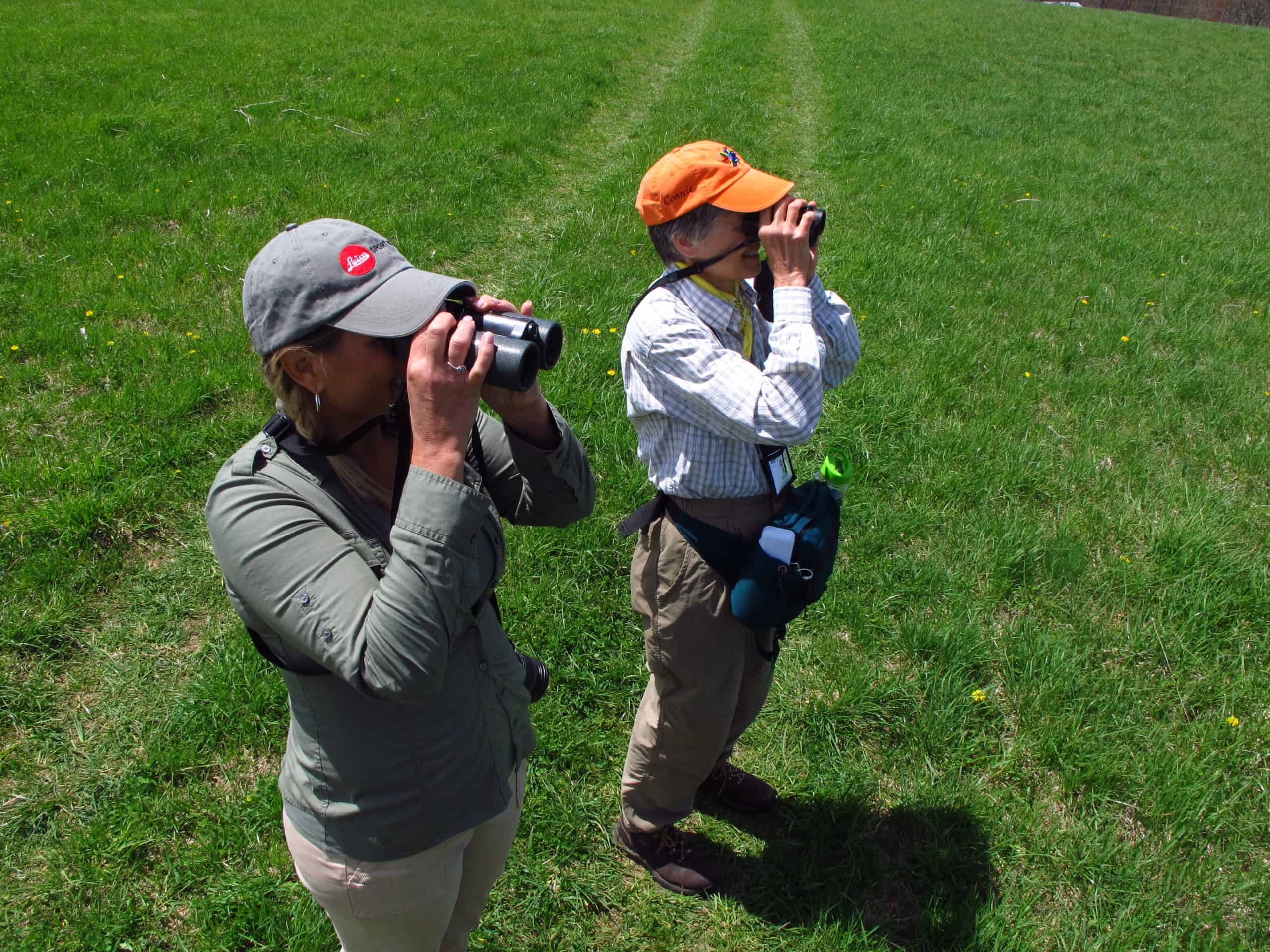
6. They always talk to strangers.
When they encounter a stranger, even in the remotest part of the deep woods, most birders will mutter a hello or even ask what birds are being seen. This is a direct violation of another of my mother’s admonitions from long ago: Never, ever, talk to strangers. I am always amazed that the same person who would cross a street to avoid a stranger will get chummy with a stranger in the woods (although I admit to doing this myself, particularly if the stranger has expensive binoculars hanging around her neck).
So far I’ve commented on the habits I notice most. They are not the only habits. Not even close. The complete list could be endless. There are some habits that are so well known that they have become legendary. For example, it is common knowledge that bird watchers are terrible drivers. Never drive or follow too closely behind one. They meander erratically, slow to a crawl for no apparent reason, and brake suddenly without warning. Most dangerously, they often spend more time looking out the side window than watching the road ahead.
Although it is not often discussed, bird watchers are also noted for their sartorial splendor (or lack thereof). Outfits worn for birding often defy description and are not easily classified. And as the weather becomes colder or more inclement, the choice of accessories such as scarfs, hats, and gloves become more imaginative. The choice of colors, patterns, and styles is matched in diversity only by the birds themselves. Birders definitely do not follow the dictates of the fashion world.
Experienced birders are generally skilled observers, particularly good at noticing minor details. Use your birding skills to carefully study your fellow birders. I expect you will notice some of the habits I have mentioned. I’m sure you will notice others, as well. Add them to the list. It could get quite lengthy.
Yet despite their peculiarities, bird watchers remain my favorite group of people. I would not enjoy birding as much without them.

